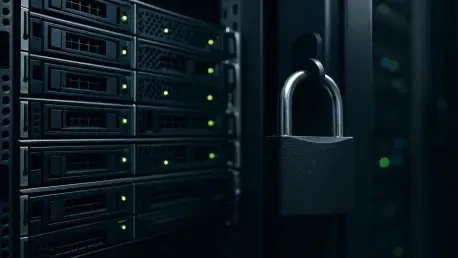In an era where cybersecurity threats loom larger than ever, a newly identified vulnerability in a widely used credential management platform has raised significant concerns among IT professionals and organizations worldwide, particularly with Devolutions Server. This critical flaw, tracked as CVE-2025-12485, affects Devolutions Server, a tool trusted by countless enterprises for secure access and password management. With a CVSS score of 9.4, the issue is classified as critical, posing severe risks to confidentiality, integrity, and availability of sensitive data. The vulnerability centers on the handling of pre-MFA (multi-factor authentication) cookies, which, if exploited, could allow attackers with minimal access to impersonate legitimate users. This alarming discovery underscores the importance of robust security practices and timely updates in protecting organizational networks. As cyber threats continue to evolve, understanding the nature of this flaw and its potential impact is essential for safeguarding critical systems against unauthorized access and data breaches.
Understanding the Vulnerability in Pre-MFA Cookies
The heart of this security issue lies in how Devolutions Server manages temporary authentication cookies before the completion of MFA verification. These pre-MFA cookies, intended to facilitate the authentication process, inadvertently contain enough information for a malicious actor with basic network access to bypass initial security checks. While the second factor of authentication remains a separate hurdle, the ability to establish an unauthorized session through this exploit is deeply concerning. Attackers with low-level privileges can exploit this flaw to impersonate other users, potentially gaining access to sensitive accounts. Depending on the permissions associated with the compromised identity, this could lead to unauthorized data access, configuration changes, or even administrative actions. The implications of such a breach are far-reaching, as it could serve as a gateway for lateral movement within a network, exposing critical systems and stored credentials to further compromise.
Beyond the technical mechanics, the vulnerability highlights a broader challenge in balancing user convenience with stringent security measures. Authentication processes often involve multiple steps to ensure robust protection, yet flaws in intermediate stages like pre-MFA cookie handling can create exploitable gaps. For organizations relying on Devolutions Server, this issue serves as a stark reminder of the risks inherent in widely adopted tools. A successful attack exploiting this flaw could undermine trust in the platform and lead to significant operational disruptions. The critical CVSS score of 9.4 reflects the urgency of addressing this threat, as the potential damage includes not only data breaches but also reputational harm. IT teams must recognize that even seemingly minor oversights in authentication workflows can have catastrophic consequences if leveraged by determined adversaries in today’s sophisticated threat landscape.
Implications for Organizational Security
The widespread adoption of Devolutions Server across various industries amplifies the potential fallout from this vulnerability. Organizations using the platform to manage privileged access and store sensitive credentials face heightened risks if the flaw is exploited. A breach involving user impersonation could compromise high-level accounts, granting attackers the ability to manipulate systems, extract confidential information, or disrupt services. Such incidents could cascade into broader network security failures, enabling attackers to move laterally and target other critical assets. The confidentiality and integrity of data stored in vaults are particularly at stake, as unauthorized access to these repositories could expose proprietary information or customer details. For businesses in regulated sectors, such a breach could also result in compliance violations, leading to legal and financial repercussions that compound the initial damage.
Moreover, the ripple effects of this vulnerability extend beyond immediate technical impacts to influence organizational trust and operational continuity. A security incident stemming from this flaw could erode confidence among stakeholders, partners, and clients who depend on robust cybersecurity measures. Recovery from such a breach often requires significant resources, including forensic investigations, system overhauls, and public relations efforts to mitigate reputational damage. The consensus among security experts is that proactive measures are essential to prevent exploitation before it occurs. This situation underscores the need for organizations to maintain rigorous patch management practices and to educate staff on recognizing potential signs of compromise, such as unusual authentication attempts or account behavior. Addressing these risks promptly is not just a technical necessity but a strategic imperative for maintaining business resilience.
Steps Taken and Recommendations for Mitigation
In response to the identification of CVE-2025-12485, Devolutions acted swiftly to release security updates aimed at resolving the flaw. Organizations using affected versions of the server are strongly advised to upgrade to versions 2025.3.6.0 or higher, or 2025.2.17.0 or higher, to ensure their systems are protected against potential exploits. These patches address the improper privilege management issue tied to pre-MFA cookies, closing the window of opportunity for attackers to impersonate users during the authentication process. Timely application of these updates is critical, as delays could leave systems vulnerable to attacks that capitalize on this high-severity flaw. Beyond simply installing patches, IT administrators should verify the update’s successful deployment across all instances of the server to eliminate any lingering exposure to the threat.
Additionally, a proactive approach to monitoring and incident detection was recommended as part of the mitigation strategy. System administrators should closely review access logs for any indications of suspicious activity, such as unexpected authentication patterns or signs of account impersonation that might suggest exploitation occurred before patches were applied. Implementing robust logging mechanisms can aid in identifying anomalies early, allowing for rapid response to potential breaches. Security teams are also encouraged to reassess their authentication workflows to ensure that similar vulnerabilities are not present in other areas of their infrastructure. By combining immediate patching with ongoing vigilance, organizations can significantly reduce the risk posed by this critical flaw. These steps, taken in the aftermath of the vulnerability’s disclosure, provide a clear path forward for safeguarding environments reliant on Devolutions Server against evolving cyber threats.









